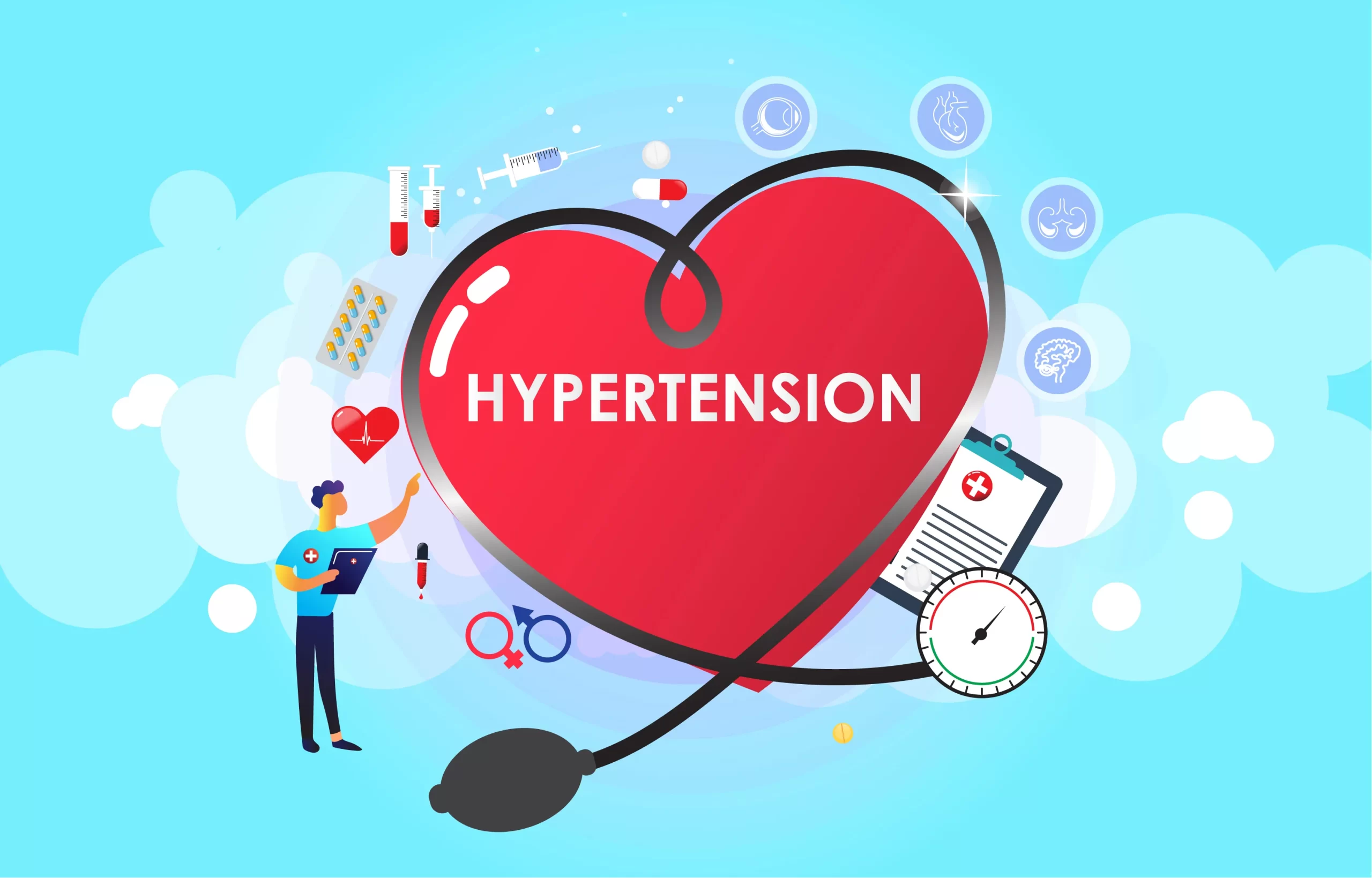Table of Contents
Introduction
What is Hypertension?
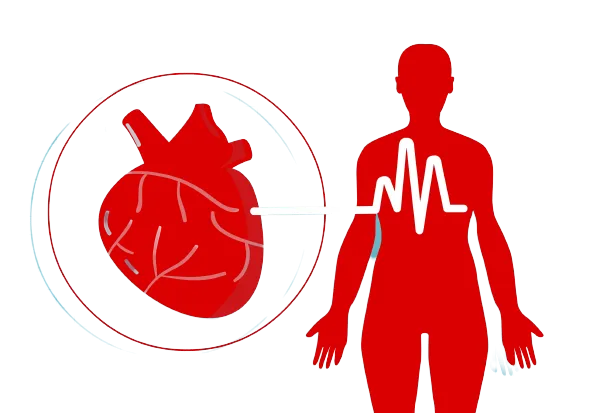
Have you ever felt your heart racing a bit too fast for comfort? That could be a symptom of hypertension, a silent, often unnoticed condition that affects millions worldwide. Hypertension, or high blood pressure, is a long-term medical condition where the blood pressure in the arteries is persistently elevated. Sounds alarming, doesn’t it? But here’s the good news: you can take control of your health with simple, natural methods. Let’s dive into 15 highly effective ways to treat hypertension.
Prioritize a Healthy Diet: DASH to Health
Who knew food could be your secret weapon against hypertension? The DASH (Dietary Approaches to Stop Hypertension) diet emphasizes on fruits, vegetables, whole grains, and lean proteins, which are powerhouses of nutrients and can help keep your blood pressure levels in check. Could there be a tastier way to good health?
When it comes to managing hypertension, diet plays a paramount role. The Dietary Approaches to Stop Hypertension (DASH) is an eating plan specifically formulated to improve heart health. This diet is rich in fruits, vegetables, whole grains, lean proteins, and low-fat dairy products while reducing foods high in saturated fat and cholesterol. The power of this diet lies in its nutrient-dense approach.
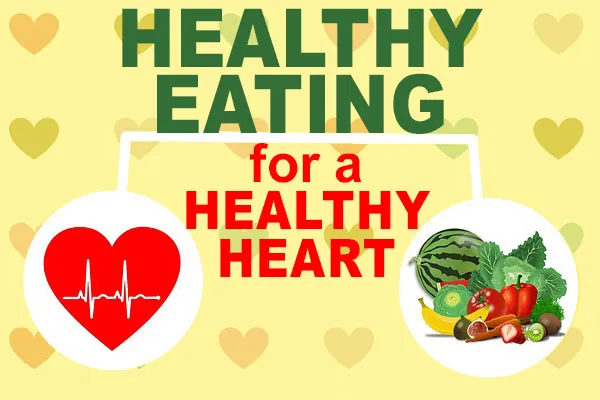
- Fruits and Vegetables: These are high in vitamins, minerals, and fiber but low in calories. They provide essential nutrients like potassium and magnesium which are vital for regulating blood pressure.
- Whole Grains: Whole grains such as brown rice, whole wheat, oats, and quinoa are high in dietary fiber which helps reduce levels of “bad” LDL cholesterol, a contributor to hypertension. They also provide essential nutrients like magnesium, which helps in maintaining steady heart rhythm.
- Lean Proteins: Sources of lean proteins include fish, skinless chicken, turkey, and plant-based sources like beans and lentils. These not only help with weight management (a key factor in controlling blood pressure) but some of them, like fish, are also rich in Omega-3 fatty acids which are known for their heart-health benefits.
- Low-fat Dairy: Dairy products provide you with essential minerals like calcium and potassium which play a crucial role in maintaining healthy blood pressure levels. Opt for low-fat or non-fat dairy options to get the benefits without the extra calories and saturated fats.
Adopting the DASH diet doesn’t have to be a sudden overhaul of your eating habits. Start by making small changes such as adding an extra serving of vegetables a day or swapping refined grains with whole ones. You’ll not only be working to reduce your blood pressure, but you’ll also be creating a foundation for a healthier lifestyle overall.
Cut the Salt: Sodium Reduction
Have you ever noticed how the salt shaker is often the first guest at the table? Too much salt can drive up your blood pressure, so it’s time to invite the salt shaker a little less frequently. Besides, when you introduce your taste buds to a rainbow of fruits and vegetables, who needs excess salt anyway?
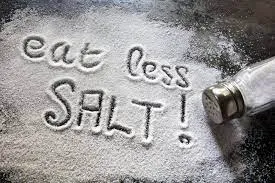
Reducing sodium in your diet is another key way to control high blood pressure. Sodium, found in salt, can increase water retention in your body, leading to an increased volume of blood, which in turn raises blood pressure. Here’s how you can cut down on your salt intake:
- Cook at Home: Preparing meals at home gives you control over the amount of salt you use. Fresh, whole foods prepared with flavorful herbs and spices can often reduce the need for added salt.
- Read Labels: Processed and prepackaged foods often contain high amounts of hidden sodium. Always read the nutritional information and opt for low-sodium or sodium-free versions.
- Eat Fresh: Fresh fruits and vegetables are naturally low in sodium. Incorporate these into your meals and snacks for a nutrient-rich, low-sodium choice.
- Reduce Gradually: Cutting back on sodium suddenly can make foods taste bland. Reduce salt gradually, and your taste buds will adjust over time.
- Use Herbs and Spices: Using other flavor boosters like garlic, onions, herbs, and spices can help reduce the need for extra salt.
Remember, it’s not just about cutting down on the salt you add to your food; it’s also about being aware of the hidden sodium in the foods you consume. Maintaining a diet low in sodium and rich in fresh, whole foods can significantly reduce blood pressure and contribute to overall heart health.
Regular Physical Activity: Step Towards Fitness
Ever felt the exhilaration of a brisk walk in the early morning or a refreshing swim in the afternoon? Regular exercise is not just great for your mood and energy levels, but it’s also a key strategy in managing your blood pressure. So tie up those laces, jump in the pool, or take a spin on the bike—you’re just a workout away from better health.

Regular exercise is one of the most effective natural ways to manage hypertension. It helps make your heart stronger, more efficient, and capable of pumping more blood with less effort. If your heart can work less to pump, the force on your arteries decreases, reducing your blood pressure. Here’s how you can incorporate regular exercise into your lifestyle:
- Consistency is Key: Aim for at least 30 minutes of moderate physical activity most days of the week. This could be a brisk walk, cycling, swimming, or even gardening. It’s not about the intensity but consistency that matters.
- Combine Cardio and Strength Training: While cardio exercises help strengthen your heart and lungs, strength training can help reduce body fat and make your muscles more efficient at using oxygen, which can help lower blood pressure. Balance is important.
- Enjoy What You Do: The best way to maintain regular exercise is to find activities you enjoy. If you love dancing, join a dance class. If nature is your thing, go for hikes or nature walks.
- Gradual Progression: If you’re new to exercise, start slow and gradually increase your activity level. It’s not a race but a lifestyle change.
Remember, any physical activity is better than none. So, take that step towards fitness, and your heart will thank you!
Limit Alcohol Intake: Cheers to Health
An occasional toast to celebrate may be alright, but if your glass clinks too often, it’s time to reassess. Reducing alcohol intake can be one of the most effective ways to treat hypertension. And when you trade that extra glass of wine for a revitalizing workout or a hearty laugh with friends, won’t your cheers ring out even louder? While moderate alcohol consumption can potentially have some heart benefits, excessive drinking can lead to multiple health problems, including high blood pressure. Here’s how you can limit alcohol for your health:

- Understand Moderate Drinking: For men, moderate drinking is up to two standard drinks a day, and for women, it’s up to one standard drink a day. A standard drink is generally 14 grams of pure alcohol, which is found in 5 ounces of wine, 1.5 ounces of distilled spirits, or 12 ounces of beer.
- Beware of High Alcohol Content: Some beers, wines, and spirits have a higher alcohol content than others. Always check the label to know what you’re drinking.
- Non-Drinking Days: Consider having several alcohol-free days each week. This can help you ensure you’re not developing a habit of daily drinking.
- Find Alternatives: If you find yourself reaching for a drink out of habit, find healthier alternatives. This could be herbal tea, sparkling water, or even a workout to relieve stress.
By exercising regularly and monitoring your alcohol intake, you can significantly reduce your blood pressure and enhance your overall well-being. As always, if you have any concerns or questions about your health, it’s best to consult with a healthcare provider.
Keep Stress at Bay: Relaxation is Key
In this hustle and bustle of life, stress seems to be a constant companion, doesn’t it? But what if you could bid it goodbye? Embrace stress management techniques such as yoga, meditation, or simply soaking in the serenity of nature. Lowering stress not only makes you feel better, but also has a profound effect on your blood pressure.
Stress can have a significant impact on blood pressure. While the relationship between chronic stress and hypertension isn’t completely understood, managing stress levels is a crucial part of a heart-healthy lifestyle. Here’s how to keep stress in check:

- Practice Mindfulness: Techniques such as meditation, deep breathing, and yoga can help you stay present and focused, reducing stressful thoughts. Just a few minutes a day can make a big difference.
- Develop Healthy Coping Strategies: Not all stress can be avoided. When you can’t avoid stress, it’s essential to have healthy coping strategies, such as reading, listening to music, taking a walk, or talking things out with friends or family.
- Get Plenty of Sleep: Lack of sleep can exacerbate stress and negatively impact overall health, including blood pressure. Strive for 7-9 hours of quality sleep each night.
- Connect with Others: Social interactions can help decrease stress. Spend time with loved ones, engage in group activities, or consider volunteering in your community.
Shed the Extra Pounds: Maintain a Healthy Weight
Every pound of weight loss is a step towards better heart health. Maintaining a healthy weight helps to lower high blood pressure, so it’s time to dust off those running shoes or enroll in that dance class you’ve been thinking about. After all, isn’t it delightful to dance your way to health?
Weight and blood pressure are closely related. Losing even a small amount of weight if you’re overweight can have a significant impact on your blood pressure. Here’s how to maintain a healthy weight:
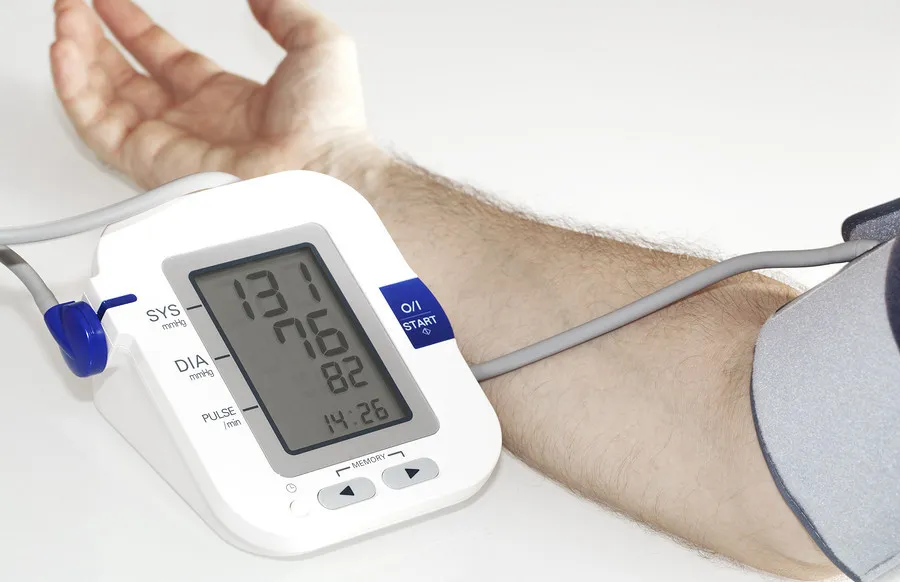
- Follow a Balanced Diet: A diet rich in fruits, vegetables, lean proteins, and whole grains can help you maintain a healthy weight while providing essential nutrients.
- Regular Exercise: As discussed earlier, regular physical activity not only helps in managing hypertension but also in maintaining a healthy weight.
- Monitor Your Progress: Keep track of your progress by regularly weighing yourself or checking your body mass index (BMI). Remember, small, steady changes are more sustainable in the long run.
No to Tobacco: Smoke-Free Life
Inhaling the crisp, fresh air of a beautiful morning—doesn’t that sound more invigorating than puffing on a cigarette? Smoking increases your blood pressure and can cause severe heart problems. Saying no to tobacco can be one of the best decisions you’ll ever make for your heart’s health.
Tobacco use is one of the most significant risk factors for developing heart disease. Smoking damages the heart and blood vessels very quickly, but the damage is also cumulative, leading to an increased risk of hypertension over time. Here’s how to lead a smoke-free life:

- Decide to Quit: Quitting smoking is one of the most critical steps you can take for your health. The moment you stop smoking, your body begins to heal.
- Find Your Reason: Whether it’s to improve your health, protect your loved ones from secondhand smoke, or save money, find your reason to quit and hold on to it.
- Get Help: Quitting smoking isn’t easy, but help is available. Support groups, resources from organizations like the American Lung Association, and smoking cessation aids can help you on your journey.
By managing stress, maintaining a healthy weight, and saying no to tobacco, you’re choosing a path that not only reduces hypertension but also leads to better health and improved quality of life. Remember, every step counts, and it’s never too late to start making healthier choices.
Cut Back on Caffeine: Choose Wisely
Are you a coffee enthusiast? While the connection between caffeine and hypertension isn’t completely clear, it’s best to practice moderation. And hey, when you can savor the rich aromas of a decaffeinated blend or explore the world of herbal teas, wouldn’t you still be a beverage connoisseur?
The relationship between caffeine and blood pressure isn’t entirely clear, but it’s known that caffeine can cause a short-term spike in blood pressure. While more research is needed, it may be wise to moderate your caffeine intake, especially if you have hypertension. Here’s how:
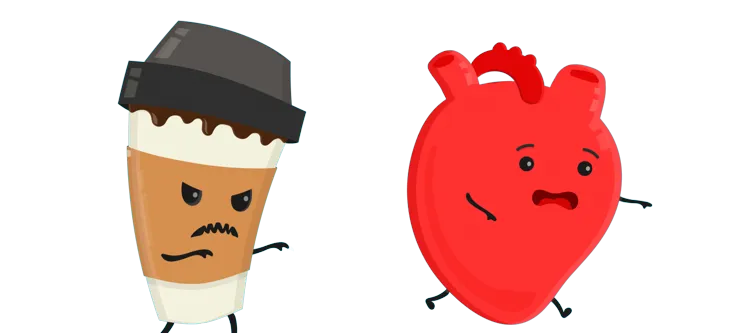
- Know Your Limits: Most research indicates that up to 400 milligrams (mg) of caffeine a day appears to be safe for most healthy adults. That’s roughly the amount of caffeine in four cups of brewed coffee.
- Gradual Reduction: If you want to cut back on caffeine, do so gradually to avoid withdrawal symptoms. Replace caffeinated drinks with alternatives like herbal tea or decaf coffee.
- Read Labels: Caffeine isn’t just in coffee. It’s also present in tea, chocolate, soda, and some medications. Always check labels to ensure you’re not consuming more caffeine than you intend to.
Monitor Your Blood Pressure: Regular Check-ups
Monitoring your blood pressure can be as simple as investing a few minutes at home or scheduling regular check-ups with your healthcare provider. Imagine being your own health detective—keeping track of clues, decoding your body’s signals, and ensuring your well-being. Exciting, isn’t it?
Monitoring your blood pressure at home can help you keep track of your health and detect any changes early. Regular check-ups with your healthcare provider are also essential. Here’s how you can stay on top of your blood pressure:
- Use a Home Monitor: Home blood pressure monitors are widely available, and having one can help you keep a close eye on your numbers. Ensure it’s calibrated correctly for accurate readings.
- Regular Check-ups: Even with home monitoring, regular check-ups with your healthcare provider are necessary. They can provide a more comprehensive health assessment and adjust your treatment plan as necessary.
- Understand Your Numbers: Knowing what your blood pressure numbers mean can help you take prompt action if they start to rise. A healthy blood pressure reading is generally considered to be around 120/80 mm Hg.
Eat Dark Chocolate: A Sweet Treat
Who said a journey to health can’t be sweet? Dark chocolate, with its rich flavors and heart-healthy benefits, is your delightful partner in this journey. Dark chocolate contains flavonoids that can help lower blood pressure. So go ahead and indulge—remember, a little bit can go a long way!
Who said maintaining heart health couldn’t be delicious? Dark chocolate is rich in flavonoids, which are plant compounds that cause blood vessels to dilate, thus lowering blood pressure. Here’s how to include dark chocolate in your diet:

- Quality Matters: Not all chocolate is created equal. Look for high-quality dark chocolate that contains at least 70% cocoa – the higher, the better. This ensures a higher concentration of flavonoids.
- Moderation is Key: While dark chocolate has heart-health benefits, it’s also high in calories and can contribute to weight gain if eaten in excess. A small piece per day is usually enough to reap the benefits.
- Savor the Flavor: Dark chocolate is rich and has a slightly bitter taste, which can be a pleasant change from overly sweet desserts. Enjoy every bite mindfully to make your treat last longer.
By choosing wisely when it comes to caffeine, staying on top of your blood pressure readings, and indulging in dark chocolate mindfully, you can play an active role in managing your hypertension. Remember, these steps are part of a holistic approach to heart health that includes a balanced diet, regular exercise, and a smoke-free lifestyle.
More Omega-3 Fatty Acids: Say Yes to Fish
Omega-3 fatty acids, particularly those found in fish, have been shown to have a positive impact on heart health and may help to lower blood pressure. Here’s why and how to increase your Omega-3 intake:
- Heart-Healthy Fats: Omega-3 fatty acids are a type of polyunsaturated fat. They help reduce inflammation in the body and lower levels of triglycerides, contributing to heart health.
- Fish is the Star: The best source of heart-healthy Omega-3s is fatty fish. Salmon, mackerel, sardines, and trout are among the top choices. Aim for at least two servings of fatty fish per week.
- Supplements: If you’re not a fan of fish or don’t have access to quality sources, Omega-3 supplements are an alternative. However, it’s always best to get nutrients from food first, if possible.
Omega-3 fatty acids—these three words might just be your heart’s best friends. Found in fatty fish like salmon and mackerel, as well as in flaxseeds, they can reduce blood pressure levels. Who knew heart health could be as simple as enjoying a well-cooked salmon fillet or a sprinkle of flaxseeds on your morning oatmeal?
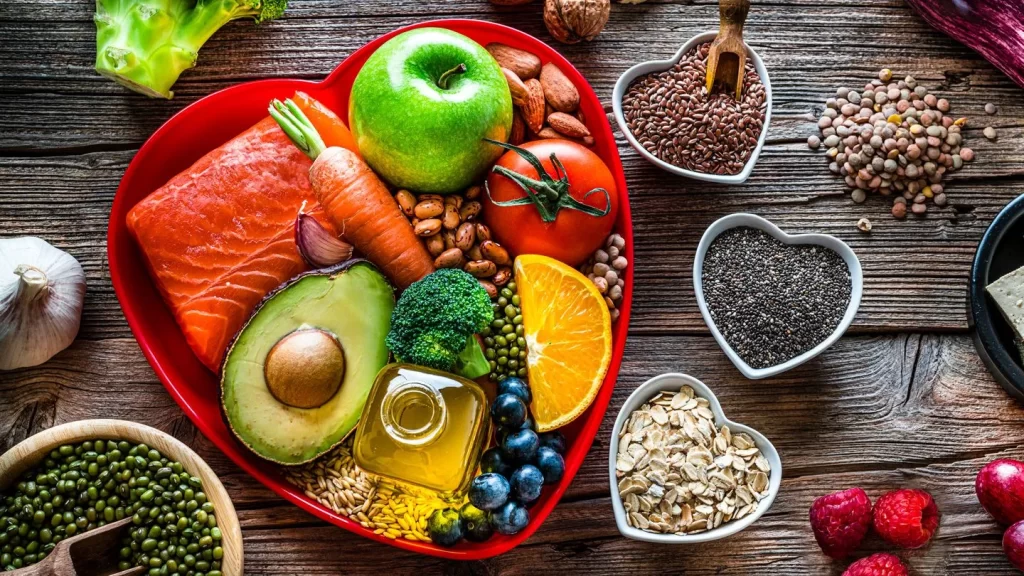
Enjoy a Cup of Hibiscus Tea: Floral Fix
Hibiscus tea, made from the vibrant Hibiscus sabdariffa flower, can be a delightful and healthful addition to your diet. Research has shown that hibiscus tea can help lower blood pressure. Here’s how to enjoy this floral fix:
- Brewing: Steep the hibiscus in boiling water for a few minutes and then strain. You can drink it hot or cold. It has a tart flavor that can be balanced with a little honey or fruit juice.
- Moderation: Hibiscus tea can lower blood pressure, but it shouldn’t replace a balanced diet, regular exercise, and medication prescribed by your doctor.
How about a soothing, warm cup of hibiscus tea to ease your day? This fragrant floral brew isn’t just a pleasure for your senses, it’s also a boon for your heart health. Hibiscus tea has been found to lower high blood pressure. Now, that’s what we call a cup of wellbeing!
Take Coenzyme Q10:
Supplement for Health Supplements can play a key role in managing hypertension. Coenzyme Q10, a substance that occurs naturally in the body, has been found to reduce blood pressure. Remember to consult your healthcare provider before starting any supplement regimen. Because when it comes to health, isn’t it best to be informed and safe?
Coenzyme Q10, also known as CoQ10, is a compound that helps generate energy in your cells and has antioxidant properties. Some studies have suggested it can help reduce blood pressure, but more research is needed. Here’s how to consider CoQ10 for health:
- Supplementation: CoQ10 is available as a supplement in various forms. As always, discuss with your doctor before starting any new supplement regimen.
- Dietary Sources: While the body naturally produces CoQ10, it can also be found in certain foods. Fatty fish, organ meats, and whole grains are good sources.
By including more Omega-3 fatty acids in your diet, enjoying the benefits of hibiscus tea, and considering the role of Coenzyme Q10, you can support your overall heart health. As always, these approaches should be part of a comprehensive lifestyle strategy for managing hypertension, and any new regimen should be discussed with a healthcare professional.
Frequently Asked Questions: Unveiling Natural Hypertension Treatments in South Africa
In the pursuit of understanding natural hypertension treatments within the unique context of South Africa, many questions frequently arise. To address these inquiries, we’ve compiled a list of the 10 most commonly asked questions about this subject.
What are the natural ways to treat hypertension?
There are a number of natural ways to treat hypertension, including:
Exercise regularly
Eat a healthy diet
Lose weight if you are overweight or obese
Limit alcohol consumption
Quit smoking
Manage stress
Get enough sleep
Take herbal supplements, such as garlic, ginger, and hawthorn
Get regular medical checkups
How effective are natural ways to treat hypertension?
The effectiveness of natural ways to treat hypertension varies from person to person. Some people may find that they are able to control their blood pressure with natural methods alone, while others may need to combine natural methods with medication.
What are the risks of using natural ways to treat hypertension?
The risks of using natural ways to treat hypertension are generally low. However, some herbal supplements can interact with medications, so it is important to talk to your doctor before taking any supplements.
What are the benefits of using natural ways to treat hypertension?
The benefits of using natural ways to treat hypertension include:
They are generally safe and have few side effects.
They can help to improve overall health and well-being.
They can be used in conjunction with medication to help control blood pressure.
How long does it take for natural ways to treat hypertension to work?
It can take several weeks or months for natural ways to treat hypertension to start working. However, it is important to be patient and continue with the treatment plan, even if you do not see results immediately.
What should I do if I have any concerns about using natural ways to treat hypertension?
If you have any concerns about using natural ways to treat hypertension, you should talk to your doctor. They can help you to decide if natural methods are right for you and can provide guidance on how to use them safely.
What are the alternatives to using natural ways to treat hypertension?
If natural methods are not effective in controlling your blood pressure, you may need to consider other treatment options, such as medication. There are a number of different types of blood pressure medications available, and your doctor can help you to choose the one that is right for you.
What are the risks of not treating hypertension?
If hypertension is not treated, it can lead to a number of serious health problems, including:
Heart attack
Stroke
Heart failure
Kidney disease
Vision loss
Death
How can I prevent hypertension?
There are a number of things you can do to prevent hypertension, including:
Exercise regularly
Eat a healthy diet
Maintain a healthy weight
Limit alcohol consumption
Quit smoking
Manage stress
Get enough sleep
What are the signs and symptoms of hypertension?
The signs and symptoms of hypertension are often not present, which is why it is important to get regular blood pressure checks. If you do experience symptoms, they may include:
Headaches
Dizziness
Fatigue
Shortness of breath
Nosebleeds
Vision changes
If you experience any of these symptoms, it is important to see your doctor right away.
We hope this list offers you valuable insights into naturally managing hypertension. By addressing these common questions, we aim to assist you in your journey towards a healthier heart and overall wellbeing.
Final Thought
We’ve traversed a comprehensive journey, unveiling 15 remarkable, evidence-backed methods to manage hypertension naturally. It’s essential to remember that these strategies are not just about battling high blood pressure. They pave the way for holistic health, encompassing a better quality of life, increased longevity, and enhanced overall wellness.
Each strategy, whether it’s maintaining a balanced diet or engaging in regular physical activity, plays a unique role. Embracing a diet rich in fruits, vegetables, lean proteins, and whole grains, for example, not only keeps your weight in check but also ensures your body receives the nutrients it needs to function optimally. Integrating physical activity into your daily routine can strengthen your heart and lower blood pressure, besides uplifting your mood and boosting your energy levels.
Cutting back on caffeine and alcohol, practicing stress management techniques, and quitting tobacco all contribute to your heart’s health and wellbeing. Simultaneously, they help you lead a more balanced, fulfilling life.
Consistently monitoring your blood pressure is key, as it can provide early detection of potential health issues, allowing for timely intervention. Additionally, incorporating healthy habits like enjoying dark chocolate in moderation, increasing Omega-3 fatty acid intake, drinking hibiscus tea, and considering Coenzyme Q10 supplementation can all contribute to heart health.
Importantly, each small change you make and every conscious decision you take is a step towards health. Each step might seem minor in isolation, but together, they create a powerful momentum towards a heart-healthy lifestyle.
The journey to managing hypertension naturally is a testament to your commitment to your health. It might require some adjustments and dedication, but the rewards—improved health, better quality of life, and peace of mind—are well worth it. So, are you ready to embark on this journey to a healthier heart and a better you?
